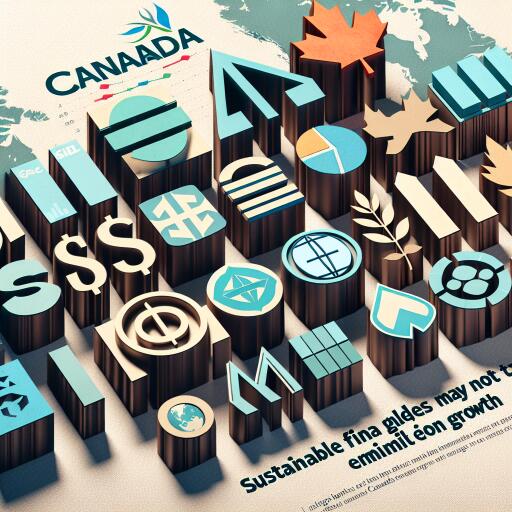
Canada’s Big Banks Cast Doubt on Impact of Their Green Financing Efforts
In a striking revelation, several of Canada’s largest banks, long criticized for their significant contributions to fossil fuel financing, have admitted their green financing initiatives might not be as effective in combating climate change as previously thought. Despite pledging vast sums towards sustainable finance to aid in the decarbonization efforts of high-emission sectors, these financial institutions have acknowledged facing substantial hurdles in achieving their climate goals.
The recent annual climate disclosures mark a pivotal moment, recognizing for the first time the limitations of their sustainability-linked financing (SLF) efforts. This transparency comes after enduring years of intense scrutiny from environmental activists and investors, urging the banks to play a more meaningful role in the fight against climate change. Reports suggest, however, that these efforts fall short of guaranteeing a reduction in emissions growth.
An integral concern stems from how these financial behemoths report their environmental, social, and governance (ESG) endeavors. Critics, including Matt Price of Investors for Paris Compliance, argue that the banks must do more than merely include disclaimers in their reporting. They must clearly communicate to investors and the public that these “green” financial figures might not directly translate to actual emissions reductions.
The issue gained further traction following a formal complaint earlier this year by climate advocacy groups, urging securities regulators to investigate the banks over potentially misleading climate-related claims. This is amidst a global movement demanding more accountability from corporations regarding their environmental commitments.
Canada, ranking as the fourth largest oil producer worldwide, finds its economy significantly entwined with the fossil fuel industry. The federal government, recognizing the urgency, has set ambitious targets to slash emissions by up to 38% from 2019 levels by 2030, placing immense pressure on all sectors, including finance, to contribute to these goals.
Bank of Nova Scotia, alongside other financial giants, has directed substantial funds towards climate-related finance with the hope of achieving C$350 billion by 2030. However, the effectiveness of these projects in reducing overall emissions remains uncertain. The bank’s approach includes financing projects aimed at biodiversity, sustainable agriculture, and the circular economy, which, while crucial, don’t directly correlate with emissions reductions.
Concurrently, other banks, including CIBC and TD, have expressed challenges in quantifying the emissions impact of their financed activities. Royal Bank of Canada, the country’s leading bank, highlighted the difficulty in aligning its clientele with the global target of capping temperature rise to 1.5 degrees Celsius above preindustrial levels.
Amidst this backdrop, the banks have committed to significantly increase funding for renewable energy and low-carbon projects. However, recent analysis by the think tank InfluenceMap points to an uptick in fossil fuel financing among Canada’s top five banks, casting shadows on their green commitment.
The situation is further complicated by global concerns over “greenwashing,” where companies’ environmental efforts are exaggerated. This practice has drawn the attention of regulators in the Americas and Europe, who are increasingly vigilant about ensuring that corporate climate pledges are both actionable and transparent.
As Canada’s banking sector grapples with aligning its financial strategies with the global climate agenda, the coming years will be crucial. The financial world’s ability to adapt and genuinely contribute to the fight against climate change remains a critical yet challenging endeavor, with significant implications for the planet’s future.





Leave a Reply